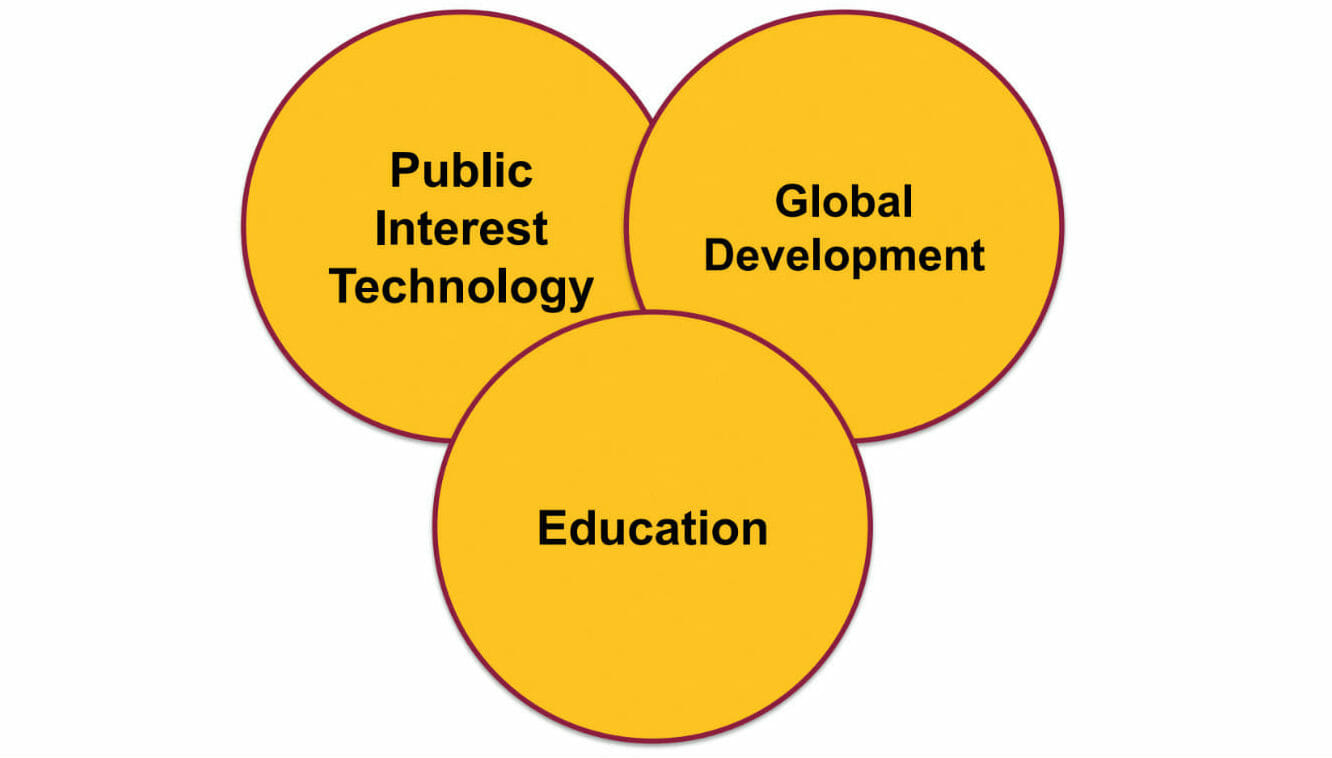
Two faculty from ASU’s College of Global Futures recently completed a unique two-day virtual workshop for the United States Agency for International Development (USAID) on Public Interest Technology (PIT) and Global Development. The focus of day one was education and the second day was about PIT and energy. This was the second workshop in as many years on Public Interest Technology by ASU for USAID under the Research Technical Assistance Center (RTAC); the first was conducted in spring 2021.
This 2022 live/synchronous workshop drew attendees from multiple countries including Lebanon, Cameroon, Jordan, Nigeria, Switzerland, Kenya, and it explored synergies in the application of technology to the advancement of human wellbeing. Professors Mary Jane Parmentier and Faheem Hussain of the School for the Future of Innovation in Society served as co-hosts for the event. The day 1 keynote was delivered by Dr. Gary Grossman on the topic of “Education and Technology in Development: Defining Terms and Leveraging Assets.” The conversation discussed PIT and education needs, priorities, and gaps, especially in our post-pandemic environment. The day 2 keynote was delivered by Saurabh Biswas on the topic of “Discovering Public Interest in Energy Transitions.”
Each day provided an insightful keynote presentation followed by small team breakout conversations to dive deeper into the topics presented. The breakouts then returned for a whole group debrief. Many of the participant conversations centered on education and energy PIT in their respective countries and regions of the globe, the impact of the pandemic on both education and energy, and considerations about the future of public interest technology.
About RTAC: The USAID Research Technical Assistance Center (RTAC) supports USAID in making evidence-based decisions by using its network of university affiliated scholars and development experts worldwide to provide expertise in all sectors and regions that USAID works in. RTAC is part of the Higher Education Solutions Network (HESN) portfolio. The RTAC Consortium partners include the University of Chicago, Duke University, the University of Notre Dame, Makerere University, and Arizona State University.
Written by Ryan Mores. For more information about ASU’s Executive and Professional Education please contact [email protected] to learn how ASU can support your sustainability goals.